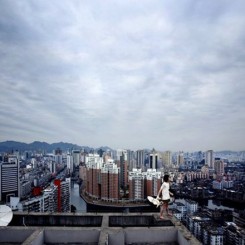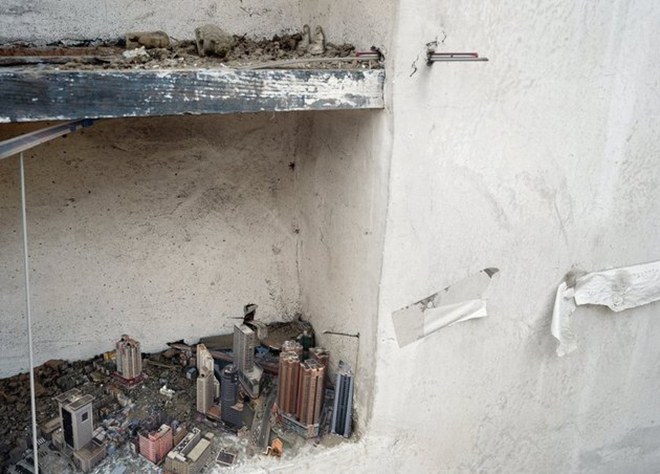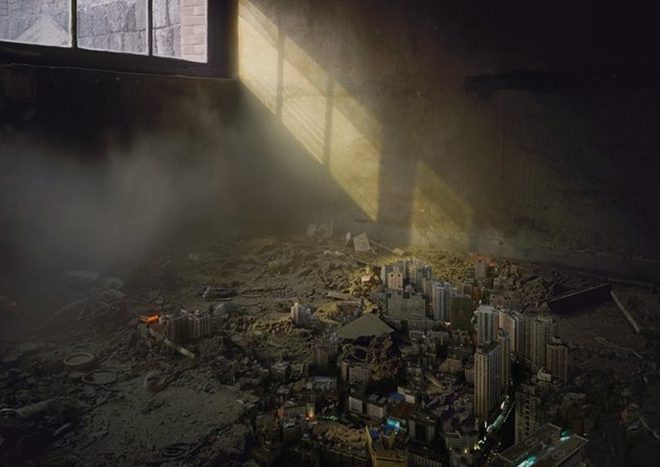Cheng Ran’s photograph “The Still of Unknown Film” (2008) depicts a 100-dollar bill burning with film-noir like red embers of neon in the background. It is an image reminiscent of the hedonistic excesses of the 80s with stock traders burning high-value notes to light their cigars. This image projects a desire for a glamorous life-style, steeped with a sense of seedy danger. His other photo “Ghost of Tundra No. 1”, 2010 features a ramshackle substitute “Hollywood” sign made of sticks. Shot from the base of the hill, it is precariously perched on the edge of a cliff. Here Cheng suggests a primitive perspective of wanting to emulate “dream factories” products and the celebrity culture of Hollywood but the epic failure to achieve it.
With Ye Linghan’s “The Spring of The Small Town” (2010), I am uncertain if the images of film stills with blurred faces are real, existing old footage or if they are made up to look like they are from the past but the effect is unnervingly haunting, as if these are now anonymous ghosts floating in a lost narrative. These characters are like faceless spirits forever re-enacting the same scenes of romance and recurring dreams of a rose-tinted past. The title, which makes reference to the film by Fei Mu, also contrasts the youthful flush of romance and innocence with the instant growth of the mega-cities in China.
The curator has drawn together artists who share concerns and critiques about the rise and rapid development of China and its impact on the human psyche. Jiang Pengyi comments on the ecological impact of mega-urban growth and also the invisible forces of the city that determine patterns of urban migration. Chen Wei, is similarly interested in the omnipotent power of the city, and its effect on the individual. He explores how it forces us to existentially confront what it means to transform our identities at the ideological and physical margins. His use of cinematic narrative and devices overlaps with the work of Cheng Ran, which seems to revel in the dreams and promises of a developed city. But at the same time there is a sense of hedonistic menace with the burning of money and seductive desperation in the mimicking of something like Hollywood ambitions and dreams. Ye Linghan’s film stills recall the romance of Chinese cinema, yet at the same time melancholically acknowledge the fading ideals of that era.
In analyzing these perspectives we can see that this is not an exhibition about the glorious declaration of something but rather the universal importance of questioning and meditating on who we are and why we are here.
Gordon Cheung’s next solo show will be at Edel Assanti this September in London. Also seegordoncheung.com



